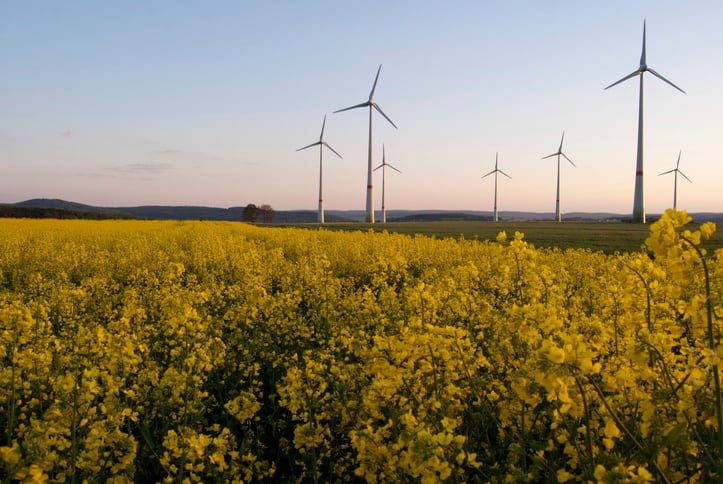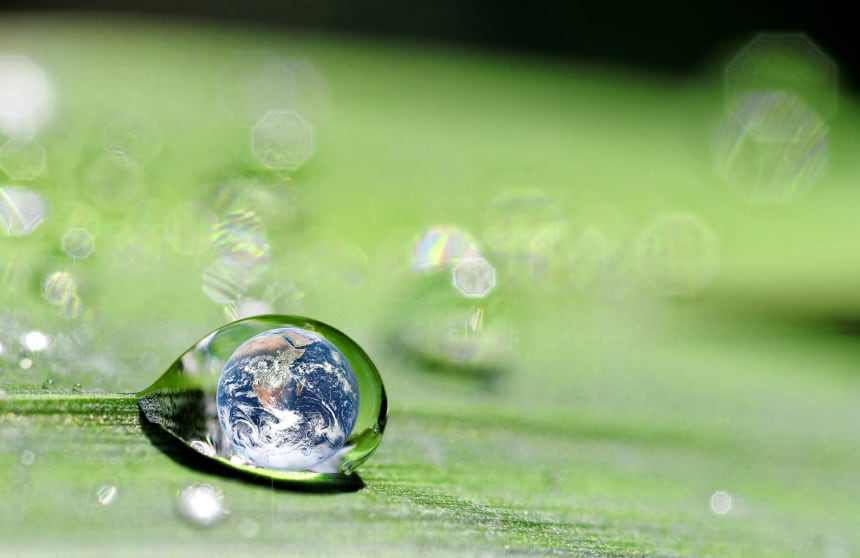At the end of 2020, Nestlé unveiled its ambition to reach net zero emissions by 2050 in a plan that kicked off with an initial investment of CHF3.2bn over the next five years.
Nearly two-thirds of Nestlé’s emissions are linked to agricultural production, the company noted, meaning that if it is to reach its target of net zero by 2050 it will need to tackle scope 3 emissions that lie within its supply chain.
Backing regenerative agriculture
The Swiss food giant provided some more insight into how it hopes to achieve just that within its EMENA region today when it stated: “Nestlé will change with its suppliers the way food is produced. Farming practices will transition to regenerative agriculture to benefit nature and improve farmer incomes.”
Regenerative agriculture incorporates practices like cover cropping, no till methods, crop rotation, mixed farming, and, increasingly, the use of smart technologies to improve efficiency.
In its grandest sense, regenerative agriculture can be used to take carbon out of the atmosphere and return it to the soil. Over a longer timeframe, this delivers results not only in terms of cutting CO2 but also improves soil health, productivity and biodiversity, with the potential to reduce reliance on pesticides and chemical fertilisers.
Of its total climate smart investment, CHF1.2bn has been earmarked to ‘spark’ regenerative practices.
Nestlé is participating in various projects to promote regenerative agriculture, including Living Soils in France, which aims to measure soil health, and ultimately, kickstart the regeneration of millions of hectares of degraded soils. Meanwhile, in the UK, the company is working with Landscape Enterprise Networks (LENs) to help establish and manage regional trading systems of collaborative value chains.
Through programmes like these, the company said it ‘empowers’ farmers to reduce pesticide use and adopt practices like permanent soil cover, crop rotation and tillage, all of which promote soil health.
Cocoa, coffee and dairy sourcing in focus
Today, the Nespresso-to-KitKat manufacturer explained that the ‘key ingredients’ for it within the EMENA business are cocoa, coffee and milk.
In addition to promoting healthy soils through regenerative agriculture, Nestlé EMENA will therefore also work towards net-zero dairy farms and ‘sustainably sourced’ cocoa and coffee.
The company reported it is already making progress in these areas.
"Our projects on healthy soils, low emission dairy farms, and sustainably sourced cocoa and coffee show promising outcomes,” Marco Settembri, Nestlé CEO for EMENA said.
“We are confident that those collaborations with farmers and suppliers can be extended to reach our net-zero climate goal."
Nestlé has committed to sourcing 100% of the cocoa and coffee it sources sustainably by 2025, while individual brands have made elevated pledges. Nespresso, for instance, has pledged that ‘every cup’ of its coffee will be carbon neutral by 2022.
As Nestlé drives towards sustainable cocoa and coffee sourcing, the company is focusing on ‘cooperating’ with farmers to end deforestation as well as what it describes as an ‘ambitious’ reforestation programme. In 2020, the company kicked off a public-private partnership with NGO Earthworm and government agencies to conserve and restore the Cavally Forest in Côte d'Ivoire.
On dairy, Nestlé said it is committed to producing products that are ‘good for people and good for the planet’.
The dairy sector accounts for around 4% of all manmade greenhouse gas emissions globally, according to a lifecycle assessment from the UN's Food and Agriculture Organization (FAO). However, in a separate report the organisation outlined challenge for policy-makers – and for the dairy sector: how to reduce environmental impacts while continuing to meet society’s needs. "Dairy products are a rich source of essential nutrients that contribute to a healthy and nutritious diet. With demand for high-quality animal sourced protein increasing globally, the dairy sector is well placed to contribute to global food security and poverty reduction," FAO noted.
In a bid to meet this challenge, Nestlé signalled its intention to ‘scale up’ actions in the dairy supply chain. The company revealed its goal is net-zero emissions dairy farms.
Nestlé projects Climate-friendly Milk in Switzerland and First Milk in the UK have already achieved ‘strong results’ in reducing carbon emissions on over 220 dairy farms, the company noted.
Actions include implementing a range of ‘better farming initiatives’, such as keeping cows longer, using more local feed, and working on cows' health.
Leveraging R&D reach
Nestlé is planning to use additional levers in its climate action efforts in the region, Katja Seidenschnur, Nestlé Sustainability Director for EMENA said.
This includes shifting its portfolio to offer more plant-based products and launching carbon-neutral brands.
"We work with farmers, shift our portfolio to more plant-based products and introduce carbon-neutral brands,” Seidenschnur revealed. “We leverage our global R&D network to deliver on our climate commitments.”
The company is also making progress on scope one and two emissions, which include those produced in its own operations and as a result of the electricity and transportation it uses. “We also rethink our manufacturing and distribution processes as well as make our packaging more circular,” Seidenschnur continued.
By 2025, 800 of Nestlé’s global sites will use 100% renewable electricity. Already, in 80 factories out of around 130 across Europe, the Middle East, and North Africa, the company relies on 100% renewable electricity.
However, Seidenschnur noted, net zero is not something Nestlé can achieve in isolation. “Let's work together with the whole value chain and governments to get this done,” she said.




